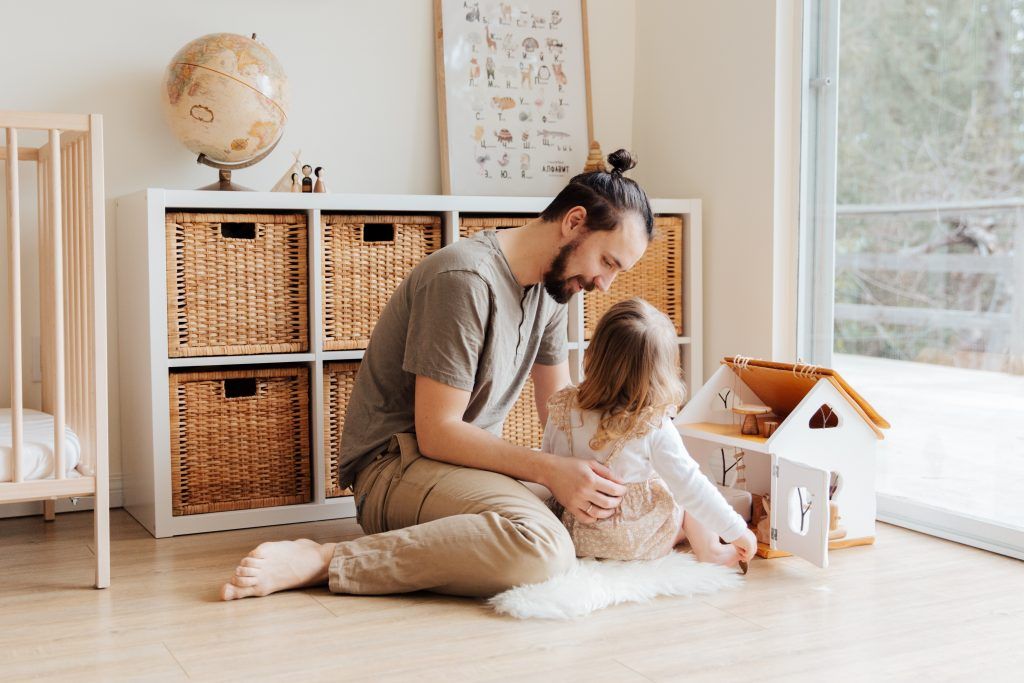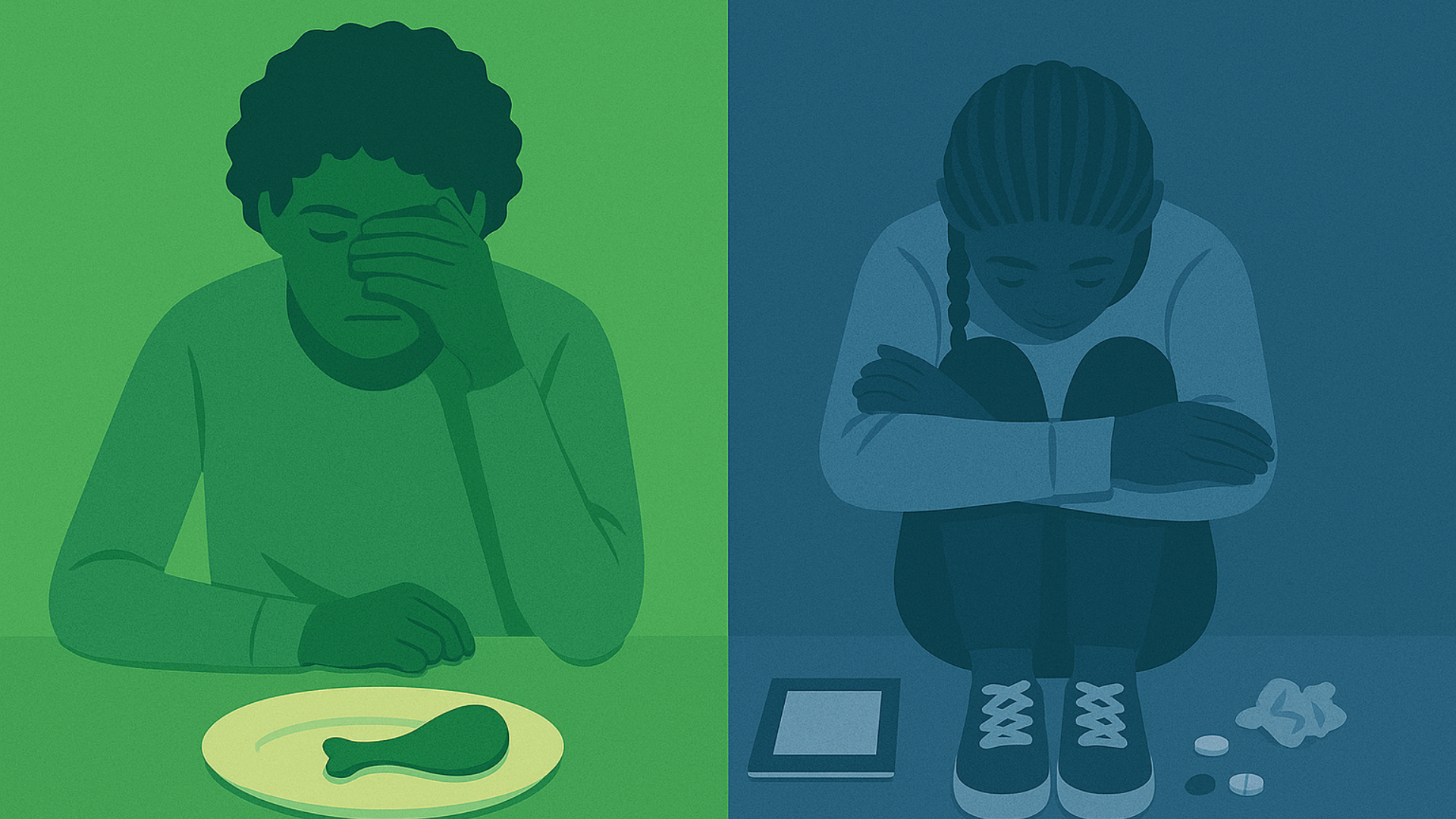Parental Involvement in Play Therapy: Four Ways Parents Can Complement Their Child’s Play Therapy at Home

By Thrive Wellness Reno Therapist Megan Meaney, LMSW, CSW-Intern
An intervention used to treat individuals of all ages struggling with a variety of mental and behavioral health concerns, play therapy is commonly used with children. Because they are still developing their cognitive and communication skills, children often express themselves best through play. Play therapy can offer a way for a child to connect with a clinician in a revealing and healing manner. When parents are able to support their child’s play therapy at home, they can help nurture their child’s mental and behavioral well-being.
WHAT IS PLAY THERAPY?
In play therapy , clinicians implement play as a way for clients to access and convey their inner experiences. Rather than asking clients to articulate their thoughts and emotions, play therapy encourages them to engage in their preferred mode of communication within a therapeutic playroom. In doing so, play therapists are able to gain insight into how a person feels while also helping them cultivate solutions to their problems.
PARENTAL PARTICIPATION IN PLAY THERAPY
A child’s struggle, or the reason they attend play therapy, and their family are often closely related. Sometimes, a child will develop a problem as a result of an issue taking place within the family. Other times, a child’s struggle may create additional challenges within the family dynamic. Whatever the case, when families are involved in the child’s healing process, play therapy is generally most effective. Depending on a family’s needs, a play therapist may ask parents to monitor the headway of their child’s treatment at home, guide parents in changing their interactions with their child, and even invite parents to participate in play therapy sessions with their child.
HOW PARENTS CAN HELP THEIR CHILD HEAL
While play therapists typically provide personalized advice for each family, some practical, broadly-applicable strategies parents can implement to support their child as they attend play therapy include:
1. Take a break from technology and just play.
Try to spend at least 30 uninterrupted minutes of technology-free time with your child each week. During this time, allow your child to control the means of play by giving them the freedom to choose their toys, games, and other amusements. Since a child’s primary way of communication is play, the themes they present within their play can often provide insight into their thoughts and emotions. As parents relate to children in their natural language, the bond between them often grows stronger.
2. Instill a sense of autonomy in your child.
Many children attend play therapy to help adjust to life transitions or process traumatic experiences. During play therapy, clinicians work with clients to understand their emotions and help them foster resilience amid their difficulties. To support this process, parents may find it constructive to allow their child to make certain, simple decisions by providing them with some options. To avoid unwanted outcomes, all options should be agreeable to parents. By allowing children to make their own choices, parents give them a sense of control that can evoke a sense of empowerment amid volatile circumstances.
For example, if a parent wants their child to clean their room, the parent may present options by saying to their child, “If you choose to clean your room now, you can go to the park when you’re finished. Or, you can choose not to clean your room and not to go to the park.” If the child decides not to clean their room and not to go to the park and is upset, the parent can say, “You decided not to go to the park. We can try again tomorrow and you can make a different choice.” For this strategy to be effective, parents do have to find the right consequence and reward choices for each instance and child, which can require some trial and error.
3. Acknowledge your child’s emotions.
Children often express their emotions in less regulated ways than their older counterparts. Their reactions may seem “dramatic” or “excessive” to parents, and parents may consequently discount their children’s emotions. However, ignoring a child’s display of feelings can generally be more harmful than helpful as it teaches the child to suppress their honest disposition. Alternatively, by acknowledging your child’s emotions, you can assist them in becoming more familiar with their temperament, rather than encouraging them to neglect their authentic emotions.
If your child misbehaves when expressing their feelings, such as by hitting you, you can still provide consequences for their actions while also validating their emotions. You might say, “It seems like you’re really upset about what happened, but people are not for hitting.” Rather than, “Stop crying, you’re fine. Don’t you dare hit me again.”
4. Even though your patience may be wearing thin, do your best to trust the process.
Many parents understandably hope to see immediate results in their children after attending a few play therapy sessions. No type of therapy, however, is a “quick fix,” and according to the Association for Play Therapy , it generally takes about twenty play therapy sessions for a client to reach a resolution. Healing and growing is a journey with many ups and downs likened more to a marathon than a sprint. In fact, sometimes behaviors can worsen upon beginning therapy because the child is just learning to process their emotions, rather than ignore them. If this is the case, confide in your child’s therapist and they can help brainstorm additional strategies for supporting your child at home during their more emotionally vulnerable moments. As long as your child continues to consistently attend therapy and you’re able to patiently support them along the way, your child’s conduct will likely improve.
PLAY THERAPY AT THRIVE WELLNESS
A powerful and imaginative self-exploration modality, play therapy can help clients uncover their inner experiences, develop a path toward healing, and spark personal growth. Thrive Wellness welcomes individuals of all ages interested in trying play therapy for themselves or their loved ones. When it comes to children, our play therapists are passionate about parental involvement in play therapy and can help empower parents to support their child’s progress. To learn more about Thrive Wellness’ play therapy for children, adults, and families, reach out .
While all Thrive Wellness locations offer interdisciplinary clinical teams who collaborate to treat eating disorders, perinatal mood and anxiety disorders (PMADs), and additional mental and behavioral health conditions, programs and services may vary by location.
About the Author
Thrive Wellness Reno Therapist Megan Meaney, LMSW, CSW-Intern
Megan Meaney earned both a bachelor’s degree in social work (BSW) and a master’s degree in social work (MSW) at Roberts Wesleyan College in New York. Throughout her career, she has worked in a variety of clinical and educational settings specializing in treating children and teenagers. As a therapist at Thrive Wellness Reno, she provides play therapy and outpatient therapy for children and adults dealing with obsessive-compulsive disorder (OCD), perinatal mood and anxiety disorders (PMADs), and perinatal loss and grief, among other mental and behavioral struggles.
Megan loves the career path she’s chosen as she finds fulfillment in fostering healing in a safe and supportive environment. She believes we aren’t meant to move through our lives alone and enjoys lifting others up as she actively listens to what clients are going through and provides an outside perspective on how to process their experiences and emotions.
When she’s not working one-on-one with clients, Megan enjoys spending time with her family and friends while exchanging stories and experiences. She’s also an avid fan of four-legged friends – especially dogs.








